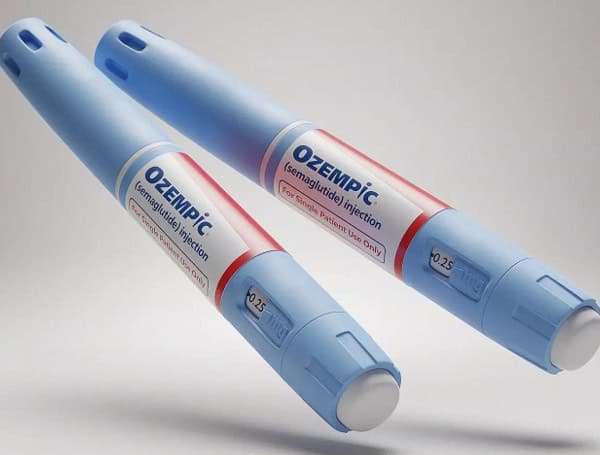GLP-1 receptor agonists like semaglutide (Ozempic, Wegovy) and tirzepatide (Mounjaro) have become household names in recent years, hailed as revolutionary treatments for type 2 diabetes and obesity. But their sudden popularity has created a dangerous shadow market: a booming trade in compounded and counterfeit versions of these drugs that pose serious risks to public health.
Originally developed to manage blood sugar, these medications have gained widespread attention for their effectiveness in promoting weight loss. With skyrocketing demand and intermittent shortages, some patients have turned to unauthorized sources—often compounding pharmacies or online sellers promising steep discounts. Unfortunately, what they’re getting may be ineffective at best—and lethal at worst.
READ: Florida Spine Surgeon Advises GLP-1 Users To Pause Medication Weeks Before Surgery
Compounding pharmacies can legally create certain medications for patients with specific needs, but they are not authorized to replicate patented, commercially available drugs like semaglutide when there’s no shortage. Even during shortages, the FDA requires compounded versions to use the active pharmaceutical ingredient—not copycat peptides from unregulated overseas labs. A recent FDA warning noted that many compounded semaglutide products on the market contain semaglutide salts, which are not the same as the approved base compound and have not been evaluated for safety or effectiveness.
More alarming still are counterfeit injectables, often sold through social media or shady websites. These products can contain incorrect dosages, harmful additives, or even entirely different compounds. In one case investigated by Bloomberg News, counterfeiters in Mexico and Eastern Europe were caught selling fake semaglutide laced with insulin, a potentially life-threatening substitution. Patients have reported adverse reactions including nausea, vomiting, and dangerously low blood sugar levels.
The risks are particularly acute for those with chronic conditions—such as diabetes or cardiovascular disease—who rely on tightly controlled dosing. And with the growing number of Americans turning to these drugs for weight loss, often without proper supervision, we may be on the cusp of a larger public health crisis fueled by desperation and misinformation.
Patients must remain vigilant. Do not purchase GLP-1 medications from unverified online sources. Confirm your pharmacy is licensed and the product is FDA-approved. Doctors and pharmacists should also educate patients about the risks of compounded and counterfeit injectables, especially during periods of shortage or high demand.
Ultimately, drug manufacturers and regulators must act swiftly to boost legitimate supply and crack down on the counterfeit market. But until then, it falls on all of us—providers, patients, and policymakers—to spread awareness and protect the public from this growing threat.
Christopher Denion, member of the Seminole County Republican Executive Committee who works at HCA Healthcare. His father, John Denion, Sr. was Branch Chief for the Healthcare Financing Administration during which he helped establish the framework for the federal Medicare and Medicaid programs.
Please make a small donation to the Tampa Free Press to help sustain independent journalism. Your contribution enables us to continue delivering high-quality, local, and national news coverage.
Connect with us: Follow the Tampa Free Press on Facebook and Twitter for breaking news and updates.
Sign up: Subscribe to our free newsletter for a curated selection of top stories delivered straight to your inbox.

